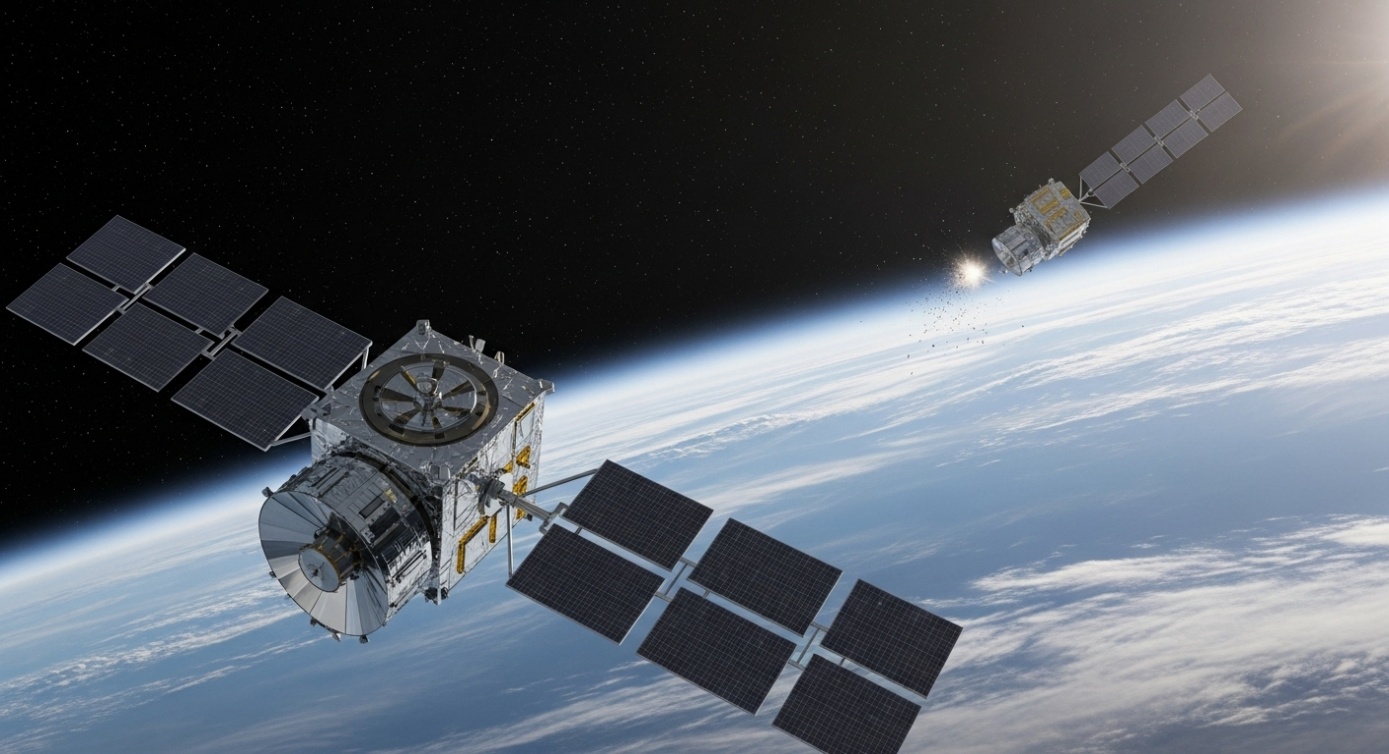


On June 25, 2025, the European Commission presented its proposal for a regulation establishing an EU Space Act, aimed at creating a consistent and harmonized framework for civil space activities within the Union. This eagerly awaited initiative is a continuation of the EU Space Strategy (2016), the EU Space Programme (Regulation 2021/696), and the Secure Connectivity Programme (Regulation 2023/588), demonstrating strong political commitment to making space a strategic, secure and sustainable pillar of the European economy.

(Image generated by Artificial Intelligence)
A three-pillar approach: security, resilience and sustainability
The draft Space Act is based on three main pillars.
The first pillar, space safety, aims to improve the operational monitoring of objects in orbit by establishing harmonized Space Situational Awareness (SSA) requirements. The proposal provides for the establishment of an authorization regime and a European register of space objects (Articles 6 to 10) and requires operators to submit end-of-life management plans (Article 79), including active or passive deorbiting mechanisms (Article 59). This approach seeks to reduce the risk of collisions and the proliferation of debris.
The second pillar, resilience, emphasizes cybersecurity requirements for space infrastructure. It sets cybersecurity obligations starting from the design phase of space systems (Articles 75 to 92), and mandates reporting significant security incidents to the European Union Space Programme Agency (EUSPA) (Articles 11 to 13). These rules complement the framework outlined in Directives NIS2 (EU) 2022/2555 and CER (EU) 2022/2557, clarifying their application to the space sector.
The third pillar, environmental sustainability, introduces an obligation to report on the environmental footprint of space activities (Article 96) throughout the entire life cycle of satellites and launchers (Article 76). The text also envisages eco-design criteria to be defined by delegated acts. These aspects foreshadow greater integration of the space sector into the objectives of the Green Deal.
Legal challenges for the European space ecosystem
The proposal requires Member States to review their national authorization regimes and, if necessary, establish or strengthen competent space authorities to work alongside the EUSPA.
To ensure fair competition, the new rules will apply to both European and non-European operators providing space services in Europe and the requirements will be adjusted to each company’s size and risk profile.
Next steps and outlook
The Space Act proposal is now entering its legislative phase under the co-decision procedure (Article 294 TFEU). The European Parliament and the Council will begin discussions on the proposed text in fall 2025, with the goal of adopting it by the end of 2026.